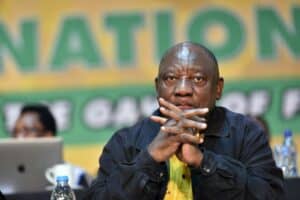Hogan is remembered for having taken a hard line in restoring good corporate governance in SOEs.

Former president Jacob Zuma’s meddling in key appointments of South Africa’s state-owned enterprises (SOEs) and in the department of public enterprises (DPE) are among details expected to surface when ex-cabinet minister Barbara Hogan testifies before the Commission of Inquiry into State Capture today.
Charged with the appointment of SOE board members in such companies as Transnet, South African Airways (SAA), and Eskom, Hogan served as DPE minister from April 2009 and was removed by Zuma in October 2010.
She is expected to share insights into her turbulent tenure as DPE minister, with claims that Zuma made it so difficult for her to fully perform her job and interfered in her appointing a director-general in her own department.
As part of Zuma’s delegation during his state visit to India in June 2010, Hogan will also be able to tell the commission how the Guptas pushed hard for government to cease the Johannesburg-Mumbai SAA flight route – a plan opposed by then SAA chairperson Cheryl Carolus.
This could only be realised after the firing of Hogan, who was replaced by Malusi Gigaba.
Hogan is remembered for having taken a hard line in restoring good corporate governance in SOEs. Her stance against Chancellor House benefitting from Eskom contracts led to her being pitted against some ANC bigwigs.
Commenting on the extent of government graft uncovered since the inquiry began its work, Ahmed Kathrada Foundation executive director Neeshan Balton yesterday said: “What has been very clear is that state capture is a systematic issue that cannot be reduced to one individual.
“What is being uncovered by the commission is making us aware of what makes state capture possible.
“We have now begun to look at serious weaknesses in our body politic and an inability by senior civil servants and political heads to say no to what is irregular.”
Balton said the coming months would see finer details into the modus operandi of those behind state capture surfacing before the inquiry – “something that transcends beyond local, provincial and national spheres of government”.
For more news your way, download The Citizen’s app for iOS and Android.






